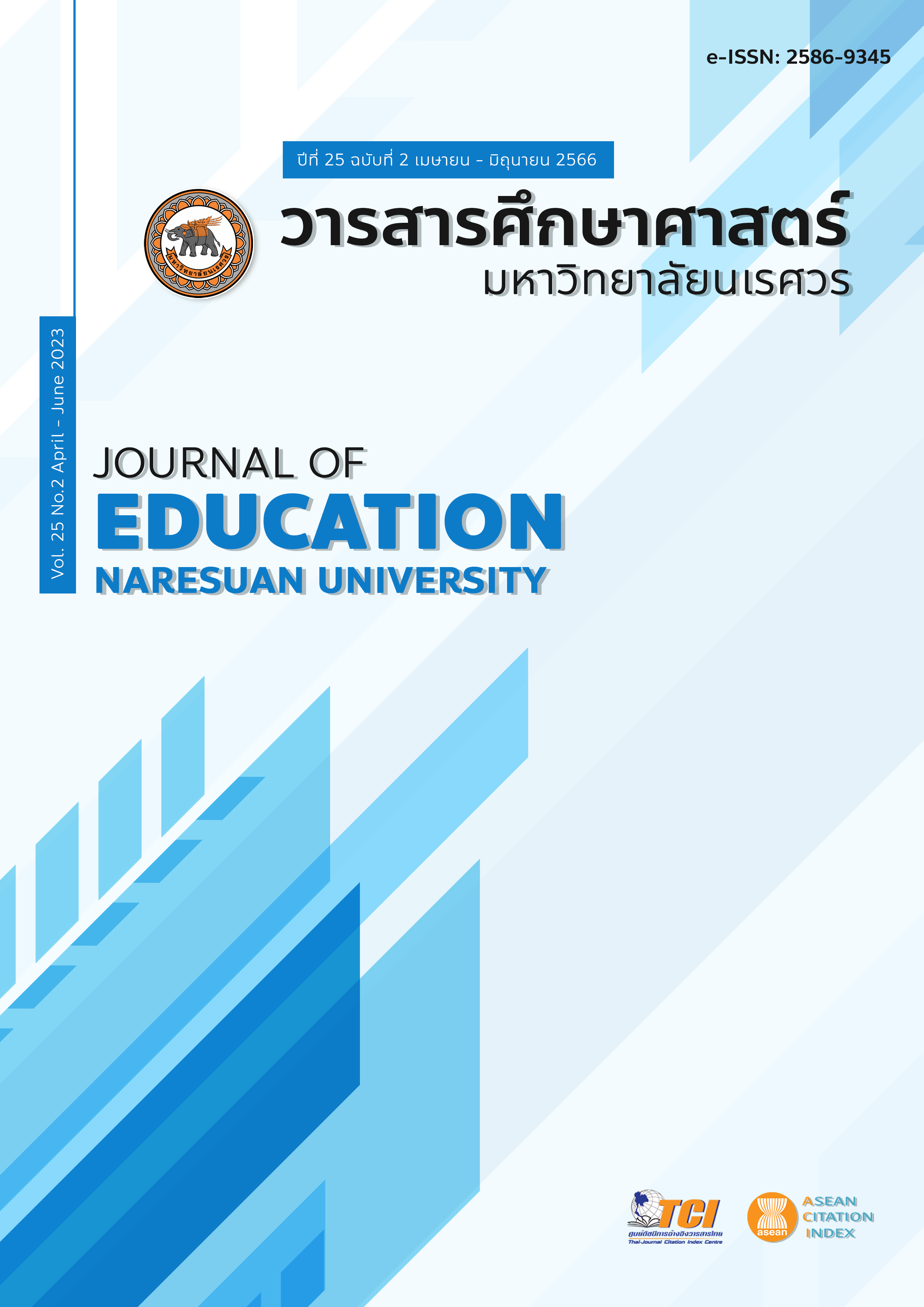ESSENTIAL COMPETENCIES OF STUDENT TEACHERS IN THE CLOSED SYSTEM TEACHER PRODUCTION PROJECT สมรรถนะที่จำเป็นของนิสิตครูในโครงการผลิตครูระบบปิด
Main Article Content
Abstract
Teacher production project in Thailand still with an unclear differentiation between an open system (regular) and a closed system (with specific institution and objective to produce teachers). What have been done was a closed teacher production project system is embedded within an open teacher production project system. These teacher production projects are corporates with policy-level institutions that need only a good teacher features for example, ‘Phet Nai Tom project, ‘Kuru Thayat’ project’ And many more projects are in process such as ‘Teacher production project for local development’ ‘Kru Rak Tin Project’. However, when student teachers follow the condition of production project and graduated, there is an immediate rate of filling as a full-time teacher. The main objective in this article is to study essential competencies of student teachers in the closed system by using theory of change as a conceptual framework. Researcher studied and analyzed data from related academic papers, student teacher in professional organization, together with result from desirable characteristics of a closed teacher production project system. The result able to determine six competencies for student teacher in a close teacher production project system including knowledge, skills and attributes that are essential for student teacher.
Article Details

This work is licensed under a Creative Commons Attribution-NonCommercial-NoDerivatives 4.0 International License.
The owner of the article does not copy or violate any of its copyright. If any copyright infringement occurs or prosecution, in any case, the Editorial Board is not involved in all the rights to the owner of the article to be performed.
References
Arporn, P. (2009). Competency Dictionary (4th ed). Bangkok: Dee Printing. [in Thai]
Arporn, P. (2012). Competency - Based training road map (TRM) (2nd ed). Bangkok: H R center. [in Thai]
Boyatzis, R.E. (1982). The Competent Manager: A Model for Effective Performance. New York: John Wiley & Son.
Dubois, D.D., & Rothwell J.W. (2004). Competency – Based Human Resource Management. Amberst, MA: Human Resource Development Press.
Danai, T. (2007). Dr. Danai Thieanphut’s perception of competencies (3rd ed.). Bangkok: A.R. IN Formation and Publication. [in Thai]
Direk, P. (2011). Approach of Teacher development. (Unpublished manuscript). [in Thai]
Equitable Education Fund [EEF]. (2019). Equitable Education Fund announcement subject on educational opportunities for local students in boondocks, new teacher generation for developing local school quality (Local Teacher project) 2020.
Government gazette. (2004). University Act 2004. 121(23A). 14 June, 2011. [in Thai]
Kanporn, A. (2018). Professional development. Nonthaburi: 21st century. [in Thai]
KSP. (2017). List of institutions offering educational programs throughout Thailand. Retrieved July 26, 2021, from https://krustation.com/293-2
McCleland, D. (1973). Testing for Competence Rather than for Intelligence. Journal of American Psychologist, 28(1), 1-14.
Narongwit, S. (2008). Strategic Performance Management System/Narongwit Saentong. Bangkok: Se-education.
Nisada, W. (2011). Dimension of Human resources management. Samutprakarn: D.K. Printing World.
Pacharawit, C. (2011). Development core competency and performance efficiency of government teachers in northeastern Thailand. Executive Journal Mahasarakharm University, 30(4), 125-136. [in Thai]
Pollasanha, P. (2005). Creative road. Bangkok: S & G Graphic. [in Thai]
Prakob, K. (2005). Government teacher and educators’ management and new educational. Bangkok: Academic quality development. [in Thai]
Sakchai, P. (2017). Good Practices of Teacher Preparation Project of Higher Education Institute in Thailand. The Journal of Dusit Thani College, 11(1), 307-320. [in Thai]
Somwang, P., Jakrit, S., Phetchara, P., Tan, P., & Sukchai, P. (2013). Research and development to promote teacher-producing institutions to achieve academic excellence: Framework for Teacher Education Institute for Thailand. Bangkok: Office of the Education Council.
Spencer, L. M., & Spencer, S. M. (1993). Competency at Work: Models for Superior Performance. New York: John Wiley & Sons.
Sujitra, T. (2005). Human resources development (2nd ed). Bangkok: Graduate School of Public Administration. [in Thai]
Teera, R. (2007). Professional in administrative management (4th ed) Bangkok: Kao Fang. [in Thai]
Thamrongsak, K. (2007). Competency in practice – How to? (2nd ed). Bangkok: Technology Promotion Association (Thailand-Japan). [in Thai]
The Civil Service Commission. (2005). Civil Service Commission competencies. Bangkok: Office of the Civil Service Commission. [in Thai]
The Education Council. (2015). Production and Development status of Teacher in Thailand. Bangkok: Prikwarn Graphic. [in Thai]
The Education Council. (2017a). System and model of teacher development in Thai society and globally. Bangkok: Prikwarn Graphic. [in Thai]
The Education Council. (2017b). Guidelines for producing closed-system teachers in Thailand. Bangkok: Prikwarn Graphic. [in Thai]
Tuan, T. (2007). Competency: Principle and guideline. Bangkok: Suan Dusit University.
Warakorn, S. (2010). Educational system proposal of Thai’s wellness. Bangkok: Parbpim. [in Thai]
Wongwanich, S. (2015). Needs assessment research (3rd ed.). Bangkok: Chulalongkorn University Press. [in Thai]


